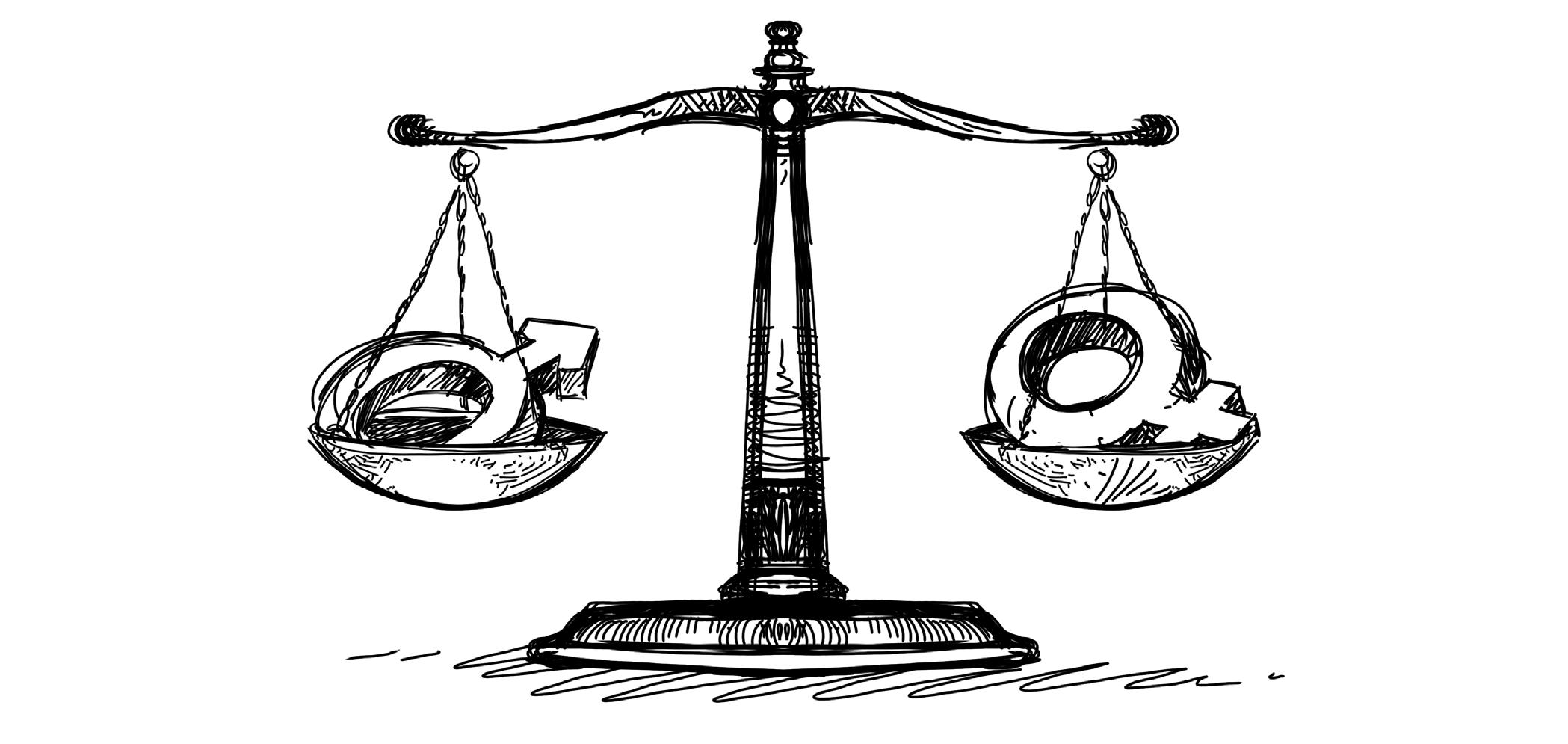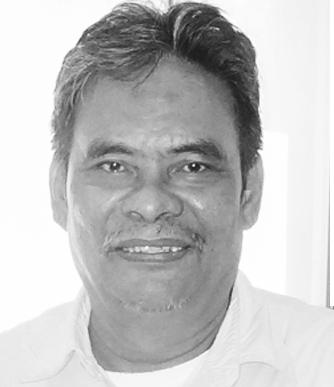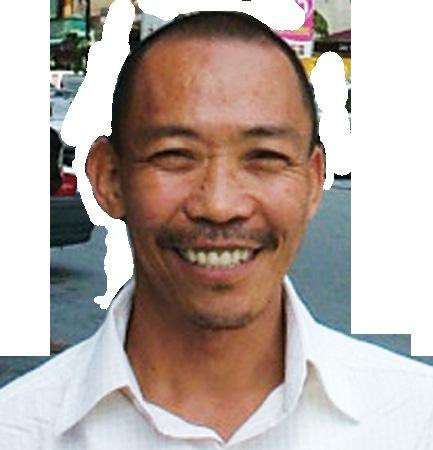
7 minute read
Have we changed the status of women?
Thevalues of Filipinos towards women have changed tremendously since the time Jose Rizal wrote the novels Noli Mi Tangere and El Filibusterismo. The Maria Clara model is now replaced by women who assert what they want. It was fun to see in the TV series how the historical impressions brought up by that Maria Clara period come in conflict with the events of the present. Gone are the vivid descriptions of women as the “ilaw ng tahanan”, tig pamahala ng economiya ng bahay”, and many others. Now, the mothers share the burden of being “haligi ng tahanan” with the fathers because they are forced to earn a living due to the hard times of today.
It is this sharing of the usual role of men in the family that many women are pushed to do. Many of them, especially the OFWs have to face and risk the dangers that we thought only men are subjected to. It is therefore about time to “raise awareness of the struggles that women go through to achieve gender equality and recognition of their human rights as women”.
Advertisement
According to historical annals, the observance of Women’s Month in the Philippines began in 1988 by virtue of Proclamation No. 224 proclaiming the first week of March as Women’s Week. This was later expanded to the entire month to promote women’s empowerment and gender equality. If we look at the present events closely, recognizing what is happening to women today doesn’t only take a month to celebrate, but the whole year. We must be reminded that it takes a lot of will power for women to succeed in their chosen endeavors, and just a few times to recall what they are doing is not enough. The challenges are endless, and may not even be enough to help.
According to PIA, “the nationwide observance, the events and activities are held to acknowledge women’s achievements and to promote women’s causes. Spearheaded by the Philippine Commission on Women (PCW), women’s groups, NGOs, and government agencies play an active role in organizing and promoting these events”. However, can we suggest that we change the usual events and activities to make them more responsive to the requirements of the time?
We know that a number of women have actually put themselves in places that are traditionally men’s. But these women come from rich families with powerful sponsors (this is a change from the belief that at the back of every successful man is a women; this time, every successful woman has the support of a well intentioned man). The government should provide support to women who have the talents and qualifications to go beyond what they can do now. Many Indigenous women, talented girls, and those who are simply trying to move out of poverty need support. Let us not give the impression that Maria Claras are still of value at this time. Let us help them break free from the bondage that centuries have kept them under the shadows of time. MC
Aresolutionwhich calls for a “hybrid” constitutional convention to amend the Constitution was approved on third and final reading by the House of Representatives on Monday, March 6.
Resolution of Both Houses No. 6 sets an election for delegates to a constitutional convention on Oct. 30, simultaneous with the barangay and Sangguniang Kabataan polls. In addition to elected delegates, the proposed constitutional convention of some 300 members from the legislative districts and some sectors would also include 63 appointed delegates, selected by the House speaker and the Senate president.
RBH6 cites the need to “revisit” certain economic provisions of the 1987 Constitution “so that the Philippines may become globally competitive.” Among these economic provisions believed restrictive by proponents of charter change is the provision which limits foreign ownership. The Constitution currently prohibits a foreign company or individual from owning the majority share in a Philippine-based company. According to House Speaker Ferdinand Martin Romualdez, principal co-author of RBH6 with Cagayan de Oro Rep. Rufus Rodriguez, amending the Constitution would be the last piece of the puzzle of the Philippines’ economic growth.

His cousin, President Ferdinand R. Marcos Jr. however has expressed belief that it is possible to get foreign investments without amending the Constitution, saying it is not a priority for him and that the country can get the investments the country wants within the framework of the current charter.
While the intended focus of the proposed Charter change is the “restrictive economic provisions,” there is nothing that prevents a constitutional convention from also making “political amendments. This was admitted by Rep. Rodriguez who was quoted as saying: “when we have a Con-con, there will be supreme constituent power of the duly elected delegates and appointed delegates. And … it will be open also, aside from economic amendment it will be open to political amendments.”
Gabriela women’s party list representative Arlene Brosas has described the proposed Cha-cha as deceptive and dangerous: “They claim that only economic provisions would be amended but it is clear that even political amendments would be made by the constitutional convention.”
In January, in a statement for the House Committee on Constitutional Amendments on the Proposed Amendments to the 1987 Constitution, independent
THESULTANATE of Magindanao has released the list of Sultans who had occupied the throne from Spanish time to the post-colonial periods on Las Islas Filipinas (the Philippine Islands).
Muda Makuta Prince Datu Mama Mastura says the Magindanao Sultanate has released the genealogical order’s list, after relatives of former Calanugas Mayor Macapado Benito declined the invitation of Sultan Salem Abdul-Aziz Mastura Kudarat V to a forum where the centuries-old Magindanao Tarsila (Traditional Genealogy) would have been read to settle conflict from differing contentions.
This developed as the sultanate is up against a modern-day challenge of a throne rivalry, following what is widely described on social media as the crowning of a “Maranao Sultan of Maguindanao”
Crowned Sultan of Magindanao in Calanogas on March 4 was Datu Macapado Benito, an engineer by profession and son of Datu Pangadapun Benito.
The elder Benito was once recognized as Sultan of Maguindanao in ceremonies hosted for Moro traditional leaders by then President Ferdinand Marcos Sr. in Malacanang in 1981.
Gemma A. Peñaflor, Administration and Marketing Executive Julito P. Torres, Circulation Officer Karl John B. Daniel, Graphic-Layout Artist
John M. Unson, Ferdinandh B. Cabrera, Charlie C. Señase
Nash B. Maulana NORTH / SOUTH COTABATO CORRESPONDENTS
Williamor Magbanua, Romer “Bong” Sarmiento, Roel Osano & Drema Quitayen Bravo CARTOONIST
Lourd Jim Diazon
According to a family member, the Benitos even wanted the recent enthronement ceremonies held in Cotabato City, following a low-key dialogue between representatives of the Mastura and Benito families at the house of Magindanao Sultan Salem Abdul Aziz Mastura in that city in January.
Social media posts gave rise to grapevine speculations that “a Maranao is crowned Sultan of Magindanao” which is traditionally and politically unlikely. Otherwise, efforts to manage the conflict between the two families—who are, after all, tied by genealogical traces of blood relations—apparently failed.
Magindanao Princess Febraida Lauban MasturaMatalam says the hold of Sultan Salem Abdul-Aziz Mastura on the ancient throne remains fortified with legitimacy of traditional consensus as well as genealogical and historical bases.
Nevertheless, the Masturas recognize the Benitos as their relatives, the latter being of Iranun Tribe origin from Balabagan, Lanao del Sur.
In the genealogical list released by the Magindanao needs to change development organization IBON Foundation, said that there is indeed a strong desire for change as “The social and economic situation of the majority of Filipinos has long lagged behind the country’s potential for real and equitable progress.” IBON however said “More foreign investment does not mean more development,” and expressed opposition to the proposed amendments to the economic provisions of the 1987 Constitution, which it said “are best retained and not subjected to any revisions or amendments.” The organization said this is a position that closely reflects the sentiments of the widest networks of people’s organizations and NGOs in the country.
According to John Paul Dizon, secretary general of Kilusang Mayo Uno-Southern Mindanao Region, the change they hope to see for the people should start from genuine agrarian reform; the distribution of lands to the farmers where they can plant crops such as rice, a staple among Filipinos; government providing them support to increase productivity such as subsidies for farm inputs. He said government should promote national industrialization to establish industries that the State will own. Former ACT Teachers party-list representative Antonio Tinio also believes that Charter change is not the solution to the country’s woes. Speaking at a public consultation organized by members of the House of Representatives advocating for constitutional amendments in San Jose del Monte, Bulacan, Tinio said “Solutions must focus on agrarian reform, massive job creation, import regulations, wage rationalization, K to 12 education, and social services.”


We are reminded of what former Agriculture Secretary Manny Piñol in 2021 said was the reason for our economic woes, our deeply embedded colonial mentality which is mirrored so unambiguously in our national economic mindset: Apparently, many lawmakers have a similar mindset, and that is one thing that needs to change. There are many others.
What MC P enlight
Sultanate which is now based here, Sultan Salem Mastura is the 26th Sultan of Magindanao from Rajah Laut Buisan, the father of Philippine Muslim hero Sultan Muhammad Dipatuan Kudarat (1581 – 1671).
Sultan Salem Mastura and Prince Datu Mama are both grandsons of Sultan Hijaban Mastura who held the throne in 1926 until he died in late 1930s.
The prince said thousands of signatures back the nationwide royal network of the Magindanao Sultanate to get Datu Benito’s proclamation as Sultan of Maguindanao in Calanogas.
Most of those in the list are traceable on Google via Wikipedia which cites as one of its sources the history book authored by the late Dr. Casar Adib Majul titled, “The Muslims in the Philippines” (1973). Majul was an eminent Muslim scholar and the first dean of the University of the Philippines Institute of Islamic Studies.
Curiously, however, neither in the Wikipedia list nor of the Magindanao prince’s list, are Sultan Muhammad Tato Esmael who succeeded Sultan Hijaban Mastura Kudarat III when he died in the 1930’s, and three others, including Datu Pangadapun Benito.
Ostensibly, “at the instance” of some Mastura elders, Benito was recognized Sultan of Maguindanao in the 1981 Malacanang Ceremonies when then President Marcos Sr. honored Muslim traditional leaders in 1981.
At that time, however, Sultan Mohammad Esmael was still alive. It was said that a perceived local political rift allegedly prompted some of the Mastura elders to settle for the crowning of Sultan Pangadapun Benito in 1981.
But Annabelle Valencia Sultan Esmael, a Muslim law counsel, says her family’s patriarch









